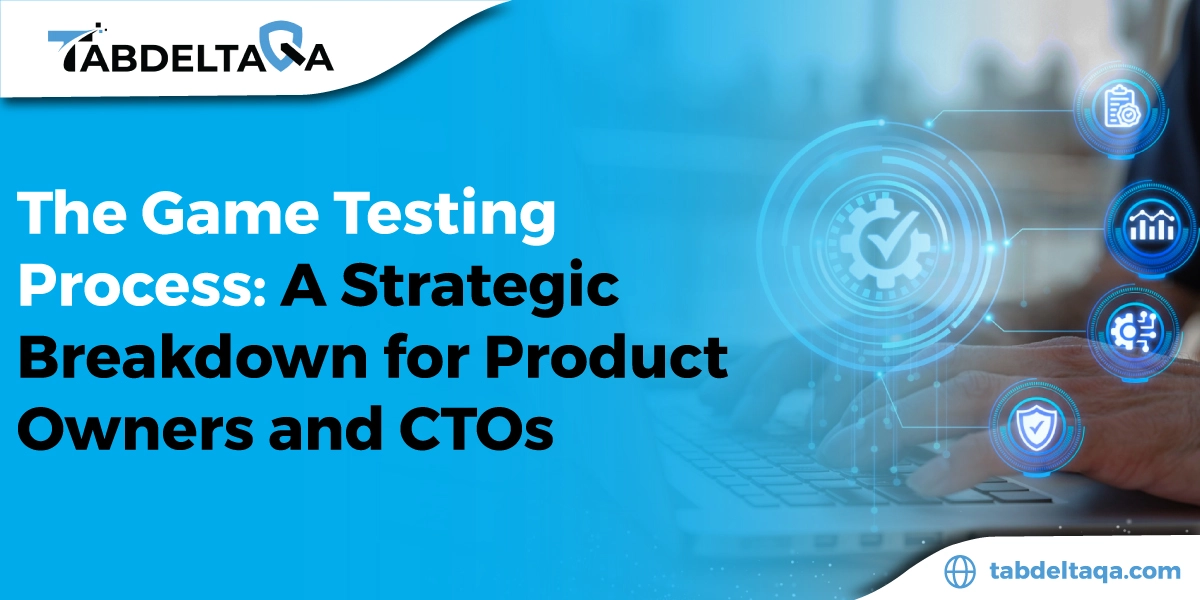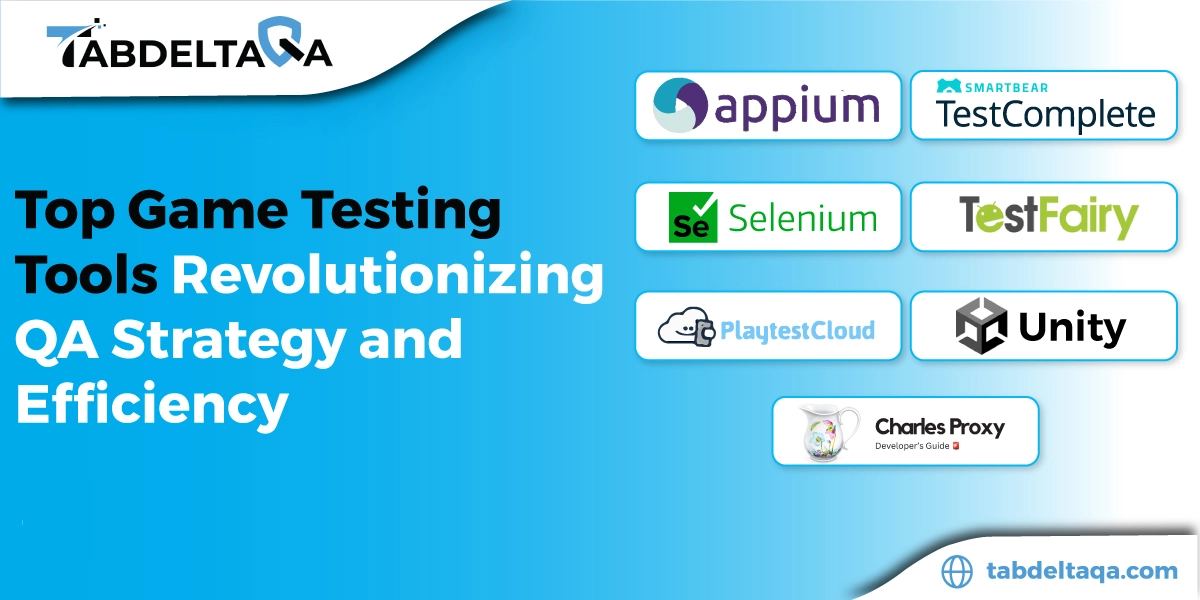How to Choose the Right QA Partner for Your Insurance Software Testing Process?
- June 25, 2025

The testing insurtech software necessitates an expert team with a profound knowledge of the peculiarities of the insurance industry. Did you know that software quality costs US businesses an eye-popping 2.41 trillion dollars every year? Selecting the correct QA partner is, therefore, a decisive step that can determine the success or failure of not only the product but also the image of the company.
With the increasingly complex nature of insurance software, legacy systems, integrations, and other regulatory requirements, quality assurance is the key in such a high-stakes industry. The insurance software testing services should handle sector-based challenges and maintain regulatory compliance and customer satisfaction.
The insurance application testing presents several levels of complexity that could not be navigated well by a generic QA provider. The optimal partner enables you to bypass expensive traps, provide frictionless user experiences, and earn customer confidence.
Whether it is testing the HIPAA compliance of health insurance software testing or proving the validity of actuarial calculations of life insurance offerings, the range of required testing knowledge and experience is specialized. This manual aids you in selecting the correct quality assurance.
Why QA Is Critical in Insurance Software?
➯ Industry-Specific Challenges
Insurance software testing falls within highly regulated settings, as a breach of regulation invites heavy penalties. Such strict levels of regulatory compliance are HIPAA, GDPR, and state-specific regulations that necessitate ongoing updates and recertification.
Policy and claims workflows are complex and cut across systems and departments. Every insurance product comprises complex business rules, premium computation, and authorization procedures, which must be subjected to comprehensive validation. These processes are usually cross-system and cross-departmental and thus have many integration points that may cause bugs.
The interface with third-party applications such as actuarial, billing, and CRM generates many points of failure. Reduced release timelines give a smaller margin during which testing can occur. Omnichannel customer experience requirements exponentially grow test scenarios across web, mobile, and call center platforms.
➯ Risks of Inadequate Testing
Financial losses from bugs can be devastating. Research proves that fixing software defects after production costs 15 times more than detecting issues during requirements stages. A single calculation error can affect thousands of policies.
Insurance company software testing must verify that applications meet all applicable regulatory requirements. Customer dissatisfaction and churn occur when applications are complicated, crash frequently, or load slowly. Proper testing eliminates these issues and ensures superb customer retention.
Key Traits of an Ideal QA Partner
➯ Domain Expertise
Insurance application testing services require a deep understanding of underwriting processes, claims adjudication, and policy administration. Experience in insurance-specific workflows helps identify critical bugs that generic providers miss.
In the digitally fueled 21st century, online crime is rapidly increasing and often targets areas where criminals can gain the most by accessing individuals’ monetary or private information. The insurance industry is one such field where the integrity of frameworks and the protection of data repositories critically rely on effectiveness.
➯ Technical Capability
Health insurance software testing needs advanced automation test techniques. According to a research study on global test automation, organizations that pay attention to test automation are better placed to enhance product quality, with 60 percent of respondents citing this as one of the main reasons why they pay attention to test automation.
Also, 58 percent of companies indicated that they were promoting automation to expedite deployment. The practice of test automation in the insurance industry is no longer limited to frontend UI testing, API testing, and unit testing but has now extended to integration testing as well as the load/performance testing space.
Performance, security, and API testing experience are vital. Insurance application testing usually includes mixed environments that will require expertise with legacy mainframes as well as modern cloud-native systems.
➯ Flexible Engagement Models
Various software testing vendors operate in different ways. Outsourcing firms as third-party providers must make themselves flexible in adapting to the QA processes of their clients. When dealing with new clients, vendors are forced to learn and adapt to new workflows relatively fast.
Onshore, offshore, or hybrid arrangements provide various benefits depending on personal needs. Onshore teams will allow superior communication and cultural fit, whereas offshore options can be more economically beneficial and allow extended coverage hours. The testing insurtech software must be flexible to increase or decrease available resources according to the project requirements.
Also Read :- The Complete Guide To Insurance Application Testing: Pain Points and Solutions
Questions to Ask Before Choosing a QA Partner
Assess the experience of insurance application software testing with certain questions regarding past clients and problems. Ask to provide more in-depth case studies that prove the knowledge of the insurance processes and regulations.
Inquire about compliance standards and certifications. Partners must possess pertinent security certifications and backgrounds in compliance testing and support auditing.
Seek the help of related insurance companies. Talk to former clients to know their results and experiences. Evaluate communication and reporting capabilities, including tools, meeting cadences, and escalation procedures.
Confirm backing of manual and automated test methods. Insurance cases need a combination of human decision-making and automation features.
Evaluating QA Partner’s Process and Methodology
➯ Testing Strategy Alignment
QA professionals initiate test planning once requirements are understood. They define work scope, devise project-specific testing strategies, and outline QA approaches for each development stage.
Test case development involves activities carried out to confirm proper system behavior. Cases ensure software features comply with guidelines through step-by-step processes covering manual and automated methods.
Once the preparation is done, the test is executed, i.e., there is the implementation of the prepared cases, the evaluation of the differences between expected and realized results, and the documentation of the issues. Testers develop sub-tests to solve problems and report results to take further action.
➯ Tools and Reporting
The new testing of insurance needs advanced tools that deal with complicated case scenarios. The partners ought also to feature industry-leading platforms and show proficiency in custom tool development.
Reports must also give a clear understanding of the quality of software and areas of risk. Seek out real-time dashboards and auto-reporting features that present you with actionable information.
➯ Security and Data Protection
When it comes to customer information, insurance application software testing services have to apply the proper security controls, data masking, and limitations of accessing the information. The management of test data and environment continues to be an issue in the generation or security of data in various environments.
Verification deals with the testing of products with the use of regression testing to ascertain that bugs have been genuinely fixed and identify new issues.
Also Read :- Top Power BI Development Companies in India for Scalable BI Solutions
Common Mistakes to Avoid When Selecting a QA Partner
Rather than the lowest cost being the criteria of choice based on the specification of the project. Make sure that selected vendors are able to conduct the testing work faster than the internal resources, streamline the QA procedures, and uncover a greater number of defects faster. According to industry analysts, intense QA eliminates 30 percent of quality expenses during project lifetimes.
Non-specialized providers can be attractive in terms of price, yet they cannot give the required domain expertise. In the European software testing landscape, banking, financial services, and insurance industries make up 28.5 percent.
Do not ignore the aspect of communication and culture fit. Communication barriers cause a severe negative impact, and effective QA necessitates close collaboration. You should not choose partners that lack scalability or perspective of providing long-term support.
In development budgets, insurance software testing dominates most of the areas and is forecasted to take about 40 percent of the total budget.
Ready to Secure and Scale Your Insurance Software with Expert QA?
A good QA partner can make compliance, risk reduction, and the delivery of better user experiences. Insurance company software testing requires specialized expertise that generic providers cannot match.
The global software testing market projects reaching $109.5 billion by 2027, while automation testing forecasts point to $68 billion by 2025. Quality assurance is imperative for insurers to build software that adheres to regulations and customer expectations.
Take a structured approach to evaluation following this guide’s framework. Don’t settle for providers lacking deep insurance domain expertise, technical proficiency, and cultural alignment with your organization’s values and objectives. Your QA partner represents a long-term investment in software quality and business success.
Outline Your QA Requirements - Connect with Experts!
Connect NowLet's Discuss Your Quality Assurance Needs!
Recent Blog
Let's Start a Conversation!
We value your input! Reach out to us with your inquiries or suggestions, and let's start a conversation.






